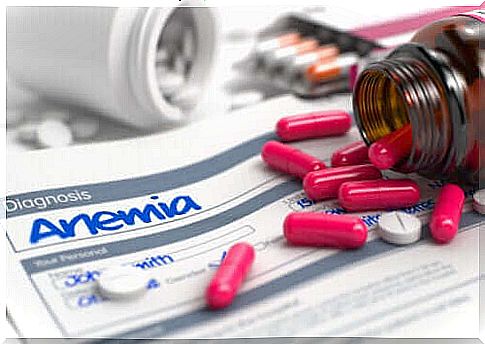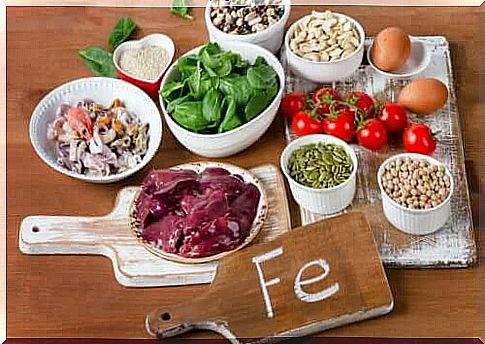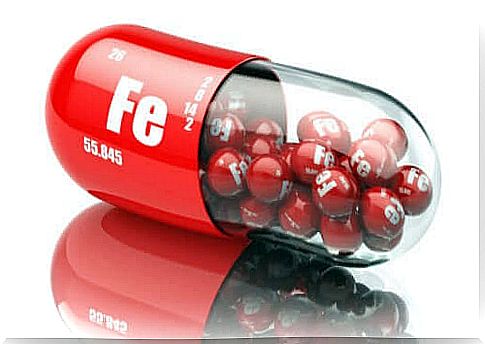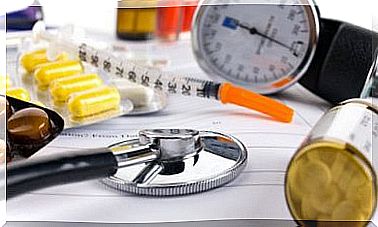When Should You Take Iron Supplements?

Iron supplements are ideal for people to take whose diets do not supply this mineral. But who really needs them? Isn’t it something you should consume often?
Iron is essential for the formation of hemoglobin and red blood cells. A deficiency can therefore lead to complications. Read on to learn who should be taking iron supplements.
Causes of Iron Deficiency
The body has trouble transporting oxygen to the tissues when iron levels in the blood drop. For this reason, the main symptoms of this deficiency are:
- weakness
- fatigue
- headache
- pallor
- cold hands and feet
Thus, these manifestations may indicate the presence of anemia.
Remember that the body’s work ability and motor activity decrease as a result of this deficiency. All this changes the immune system and thus increases the risk of disease. Low levels of this mineral also affect the lack of mobilization of vitamin A in the liver.
When should you take iron supplements?

Fortunately , iron supplements can prevent or treat these complications once they start. They should be part of a balanced diet for better results.
According to various studies (Spanish link), a number of population groups have an increased need for this mineral. It can be a result of poor diet or stages of human development associated with anemia, such as:
Pregnancy
Pregnant women need more iron for themselves and their babies. There is an increased risk of anemia if the iron deficiency during pregnancy is severe. Also if the child has a low birth weight, was born prematurely or has a low red blood cell count early on.
The World Health Organization states that more than 40% of pregnant women in the world are anemic. This could indicate that half of this population is iron deficient.
Pregnant and breastfeeding women (Spanish link) should therefore consult their doctor about the ideal supplement to avoid this problem. They can prescribe it in the form of drops or tablets. In severe cases, it is required in injection form, especially if the pregnant woman is vomiting uncontrollably.
Babies and Toddlers
Iron deficiency can cause delays in psychological development, social isolation and a decreased ability to pay attention. Full term babies can also become deficient if the mother does not include enough foods containing this mineral in their diet.
Ovulating Women and Teens
A number of women of childbearing age are prone to being deficient in this nutrient. This is generally due to heavy menstrual bleeding. Their iron loss is therefore greater than in other people.
In addition, adolescents have higher demands due to their developmental status, which is exacerbated by heavy periods. Metrorrhagia in young women starting their periods is a common cause of anemia.
Regular Blood Donors
These individuals are prone to iron deficiency, but they can avoid it by respecting the optimal time frame between one donation and the next.
Anemia due to chronic disease
According to several studies (Spanish link) , chronic diseases such as rheumatoid arthritis, inflammatory bowel disease, gastrointestinal disease and certain types of cancer can interfere with the body’s ability to absorb and use iron. This is why people with these conditions are often deficient.
Things to Consider When Taking Iron Supplements

Iron supplements are available in the form of:
- capsules
- tablets
- chewable tablets
- liquids
Ferrous sulfate is the most common, but there are other chemical forms such as gluconate and fumarate.
It is important to keep in mind that these are better absorbed if taken on an empty stomach. However, their ingestion can lead to stomach cramps, nausea and diarrhea. Therefore, take them along with a small amount of food to avoid these problems.
Calcium and antacids also interfere with its absorption, so you should wait at least two hours before taking milk, cheese, raw vegetables, caffeine and other medicines. In contrast , the types of foods that contain vitamin C, such as citrus fruits and kiwi, may promote more efficient iron absorption.
Routine blood tests are recommended to confirm an iron deficiency. This method determines the exact red blood cell count and hemoglobin levels. It is also possible to measure the concentrations of iron in the blood and its transport proteins if necessary.
Should You Take Iron Supplements?
These drugs are an effective strategy to increase body reserves, but their use is not for everyone. It should be borne in mind that the intake of a substance not prescribed by a doctor is contraindicated, as an excess of it can lead to complications.
It is also best to follow a balanced diet high in iron. Keep in mind that supplements aren’t magic, nor are they the only strategy for anemia. In the same way, the decrease in red blood cells is not always due to a lack of iron.









